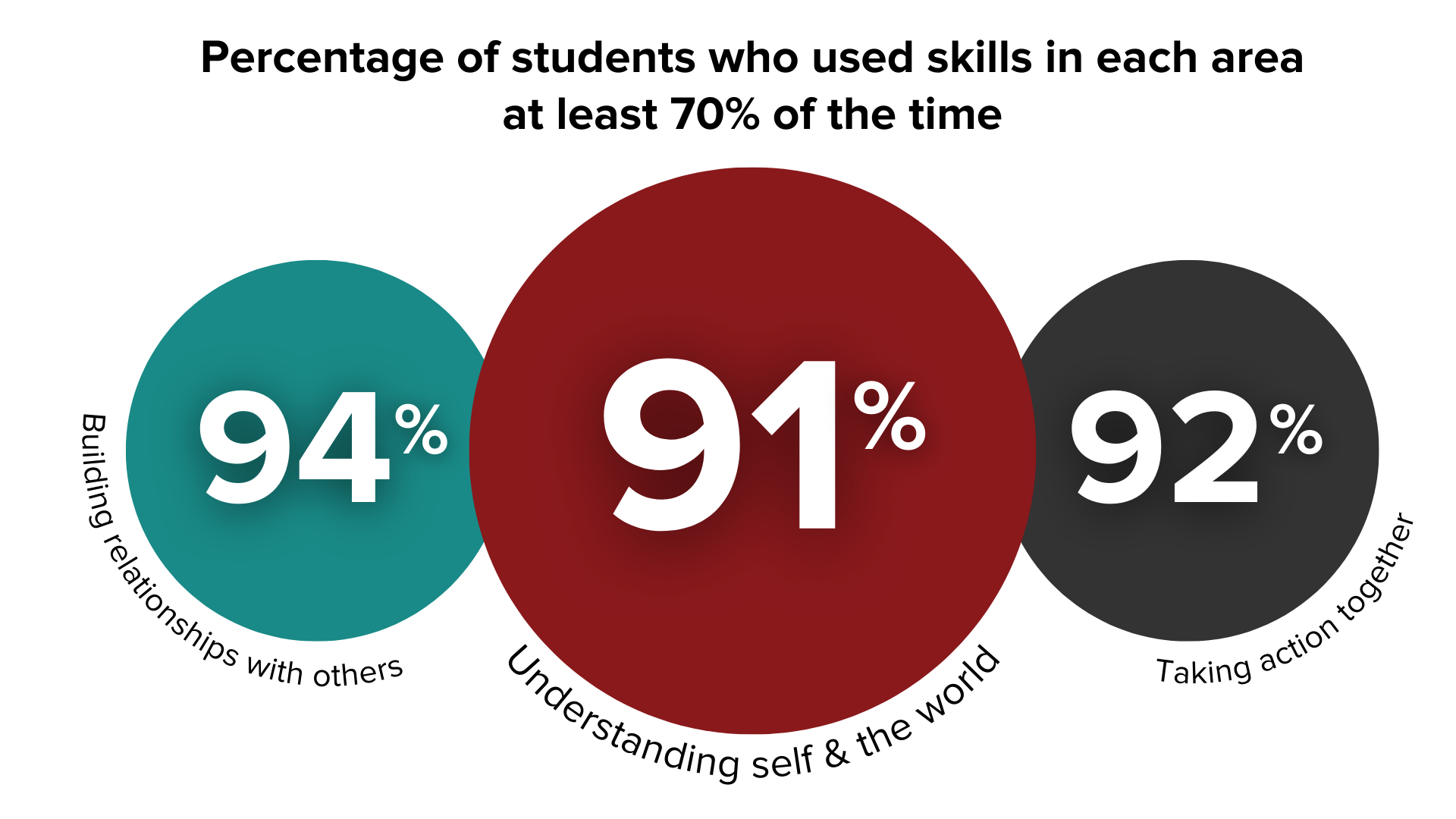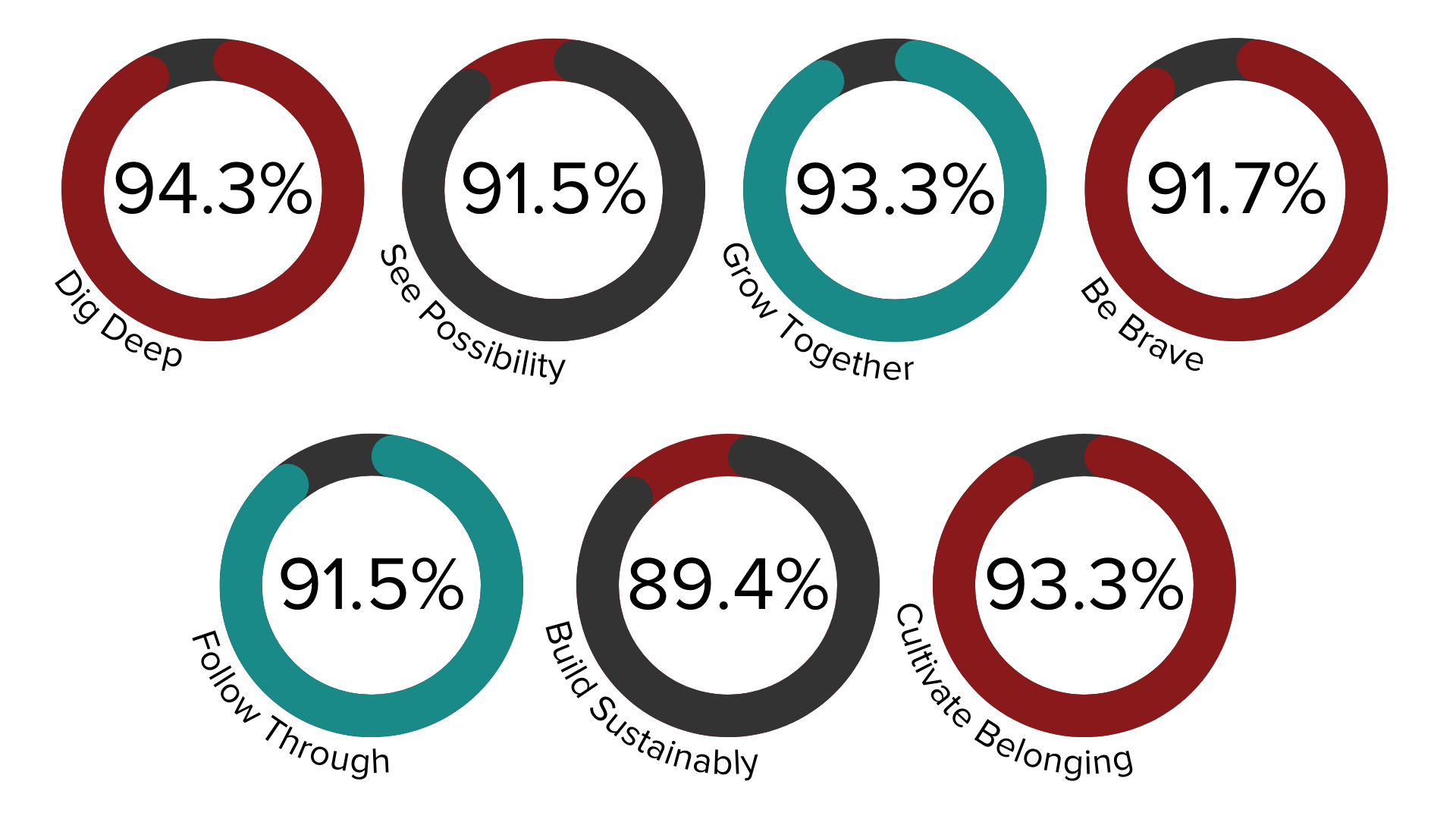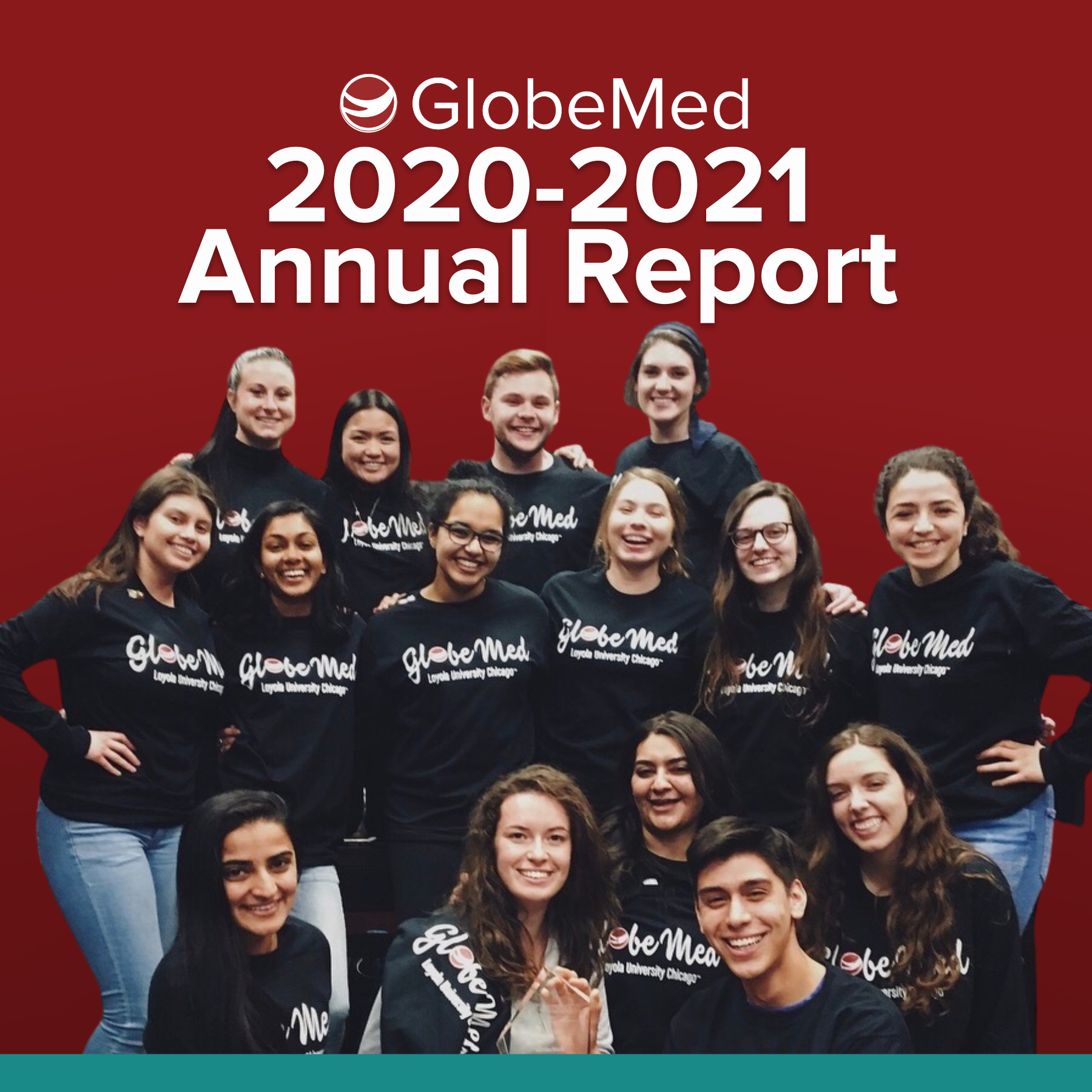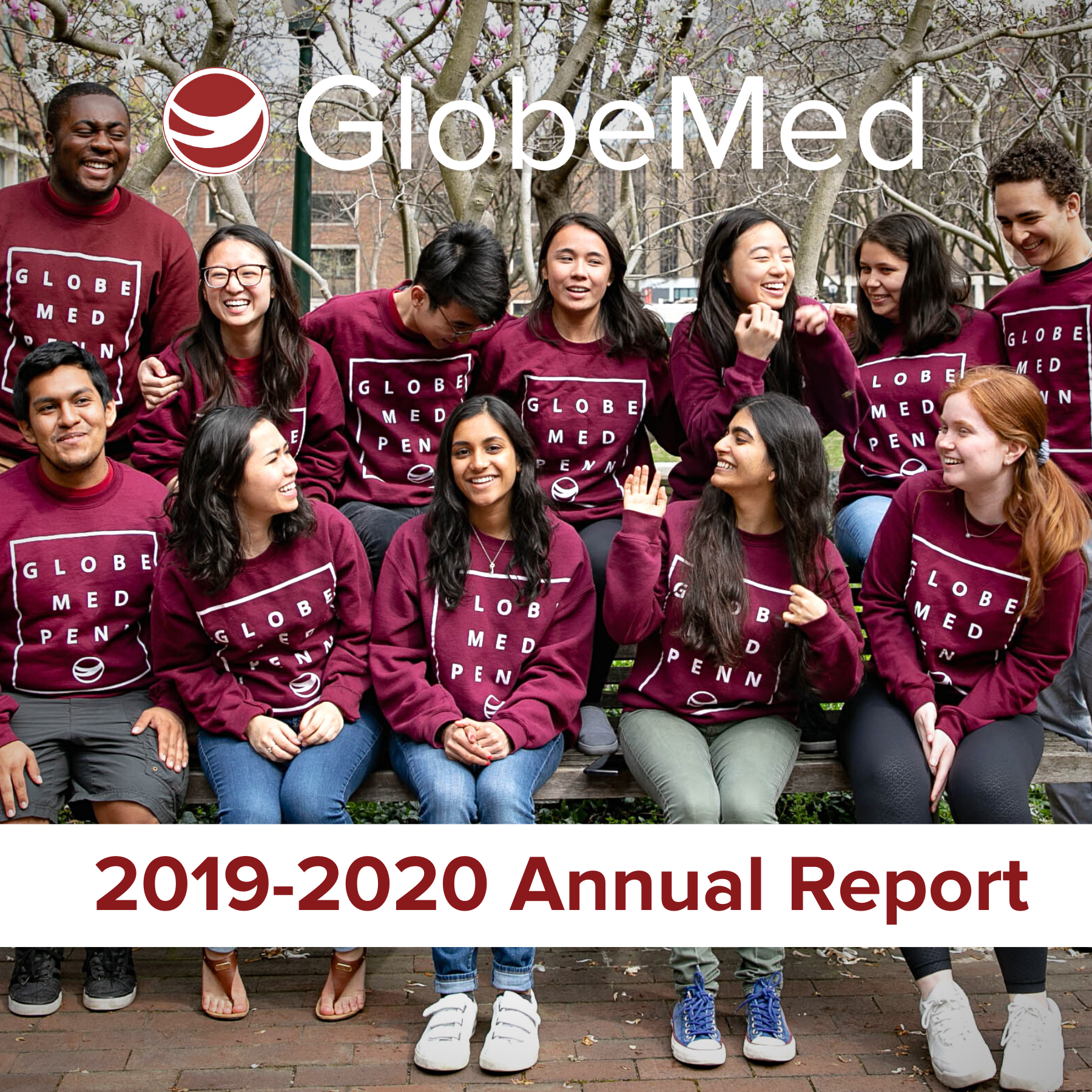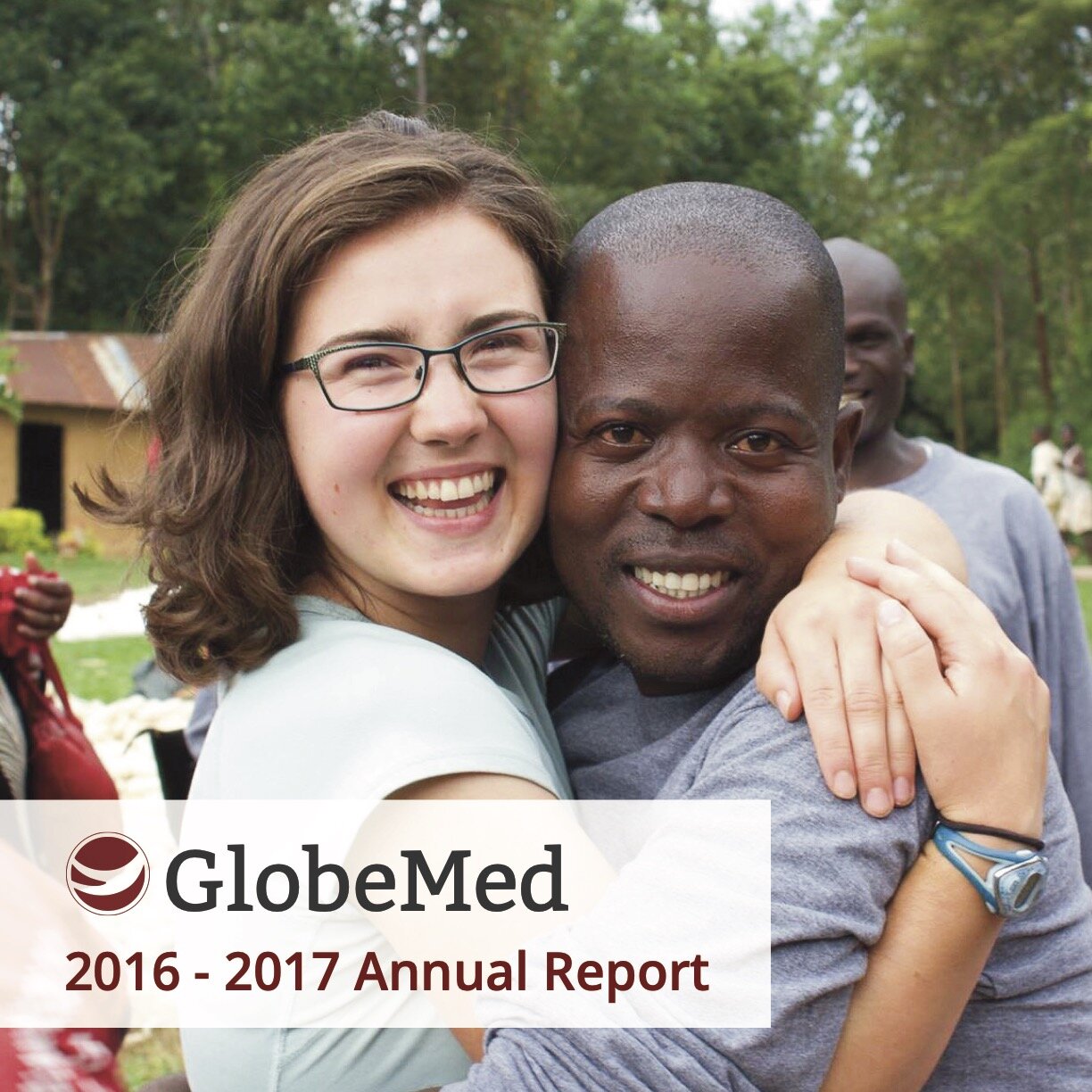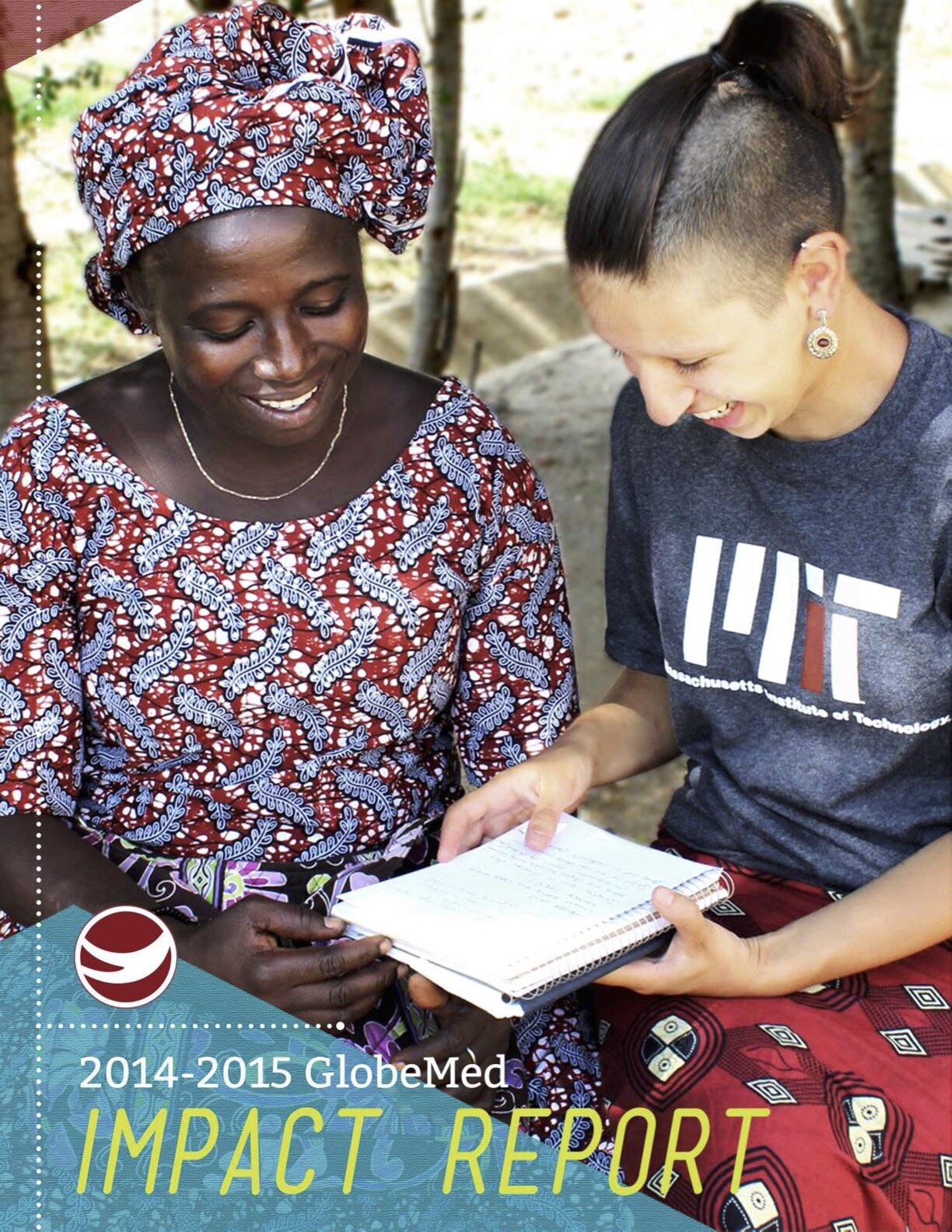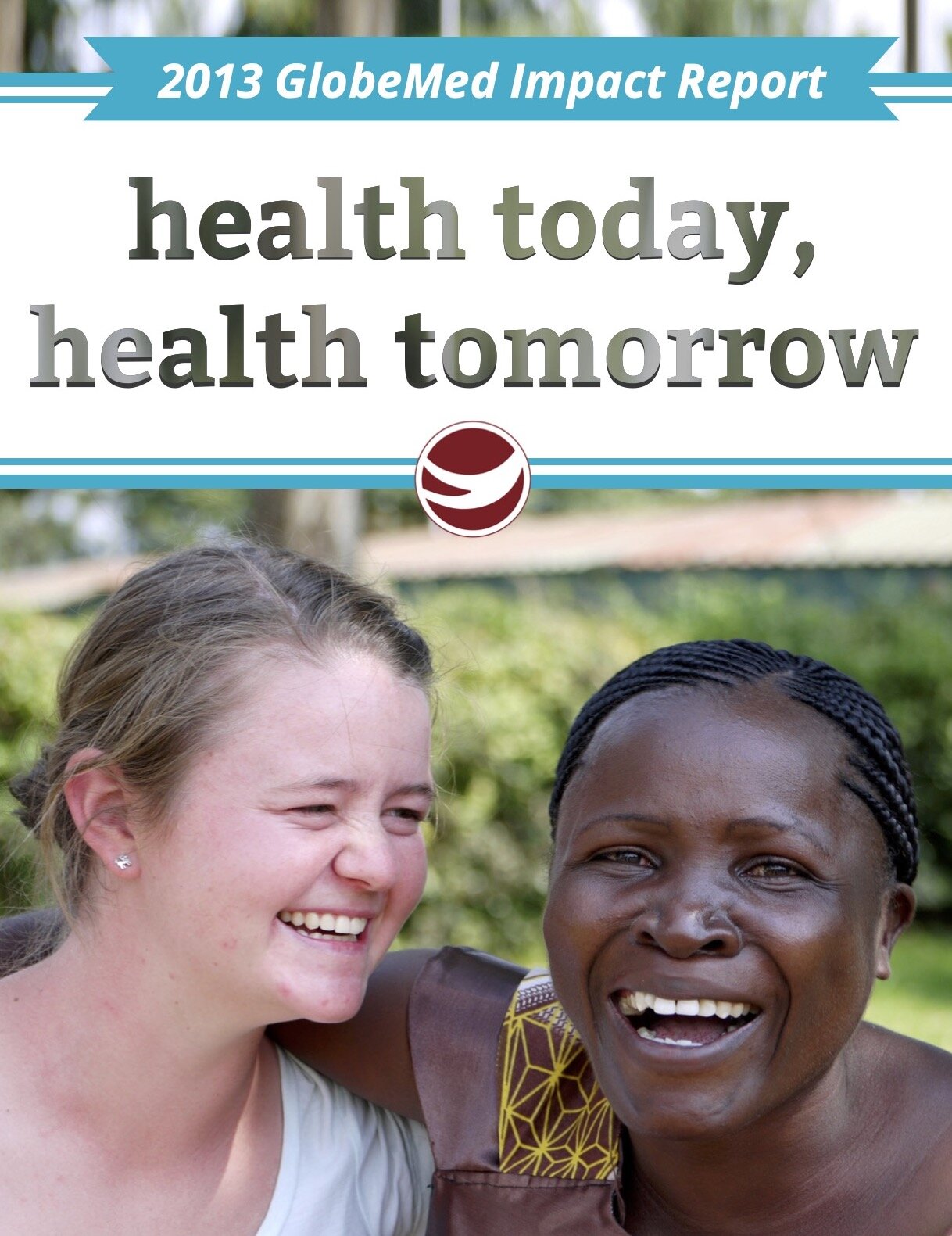Our Impact
As we work towards creating healthier, more equitable communities, GlobeMed focused on nurturing student leaders for the health equity movement.
At the center of the GlobeMed model was students’ experiential learning. GlobeMed Headquarters supported that learning by providing health equity programming, guides and resources, partnership facilitation, and coaching. The groundbreaking grassroots organizations that each chapter partnered with also provided support for participatory learning, by providing real-world expertise and insights from the front lines of the movement for health equity.
By focused learning on understanding self and the world, building relationships with others, and taking collective action, students leaders gained skills and experience with the 7 Leadership Practices and a strong foundation in social justice. Upon graduation, GlobeMed alumni become leaders in the movement for global health equity, using the practices and approaches they learned from their GlobeMed experience to create the world we envision.
GlobeMed’s Theory of Change
(click image to enlarge)
“GlobeMed has taught me what it means to always act in a manner that is intentional and aware. When there are so many reasons to think of differences between us, GlobeMed has helped to to find and cultivate the similarities.”
When we worked to define what leadership is and looks like, we knew that it is something that goes beyond just a title and position. Anyone can be a leader, but it takes a set of skills and competencies. Expanding on the 7 Leadership Practices, we identified three areas where leadership is vital: understanding self and the world, building relationships with others, and taking action together. Each area has a skill that corresponds to one of the 7 Leadership Practices and those abilities are practiced through participatory, experiential learning in the GlobeMed model.
As students seize the opportunities for anti-oppressive partnership, peer learning and leading, and community and movement that arise in their chapter, they gain experience in having an open perspective, open and honest communication, and equitable decision-making, to name a few.
Data from 2021-2022 academic year
Additionally, having more opportunities to practice those skills is important. We saw this play out in our participatory evaluation: the longer that a student was a part of GlobeMed, if they were a member of their chapter’s executive board, or if they participated in a Grassroots On-site/Online Work experience, their competency was higher.
% of students who used the associated skills at least 70% of the time
All data from the 2021-2022 academic year
“My time in GlobeMed has completely changed how I see the world, what I want to do with my life, and my aspirations for the kind of impact that I hope to have on the world.”
7 Leadership Practices
Leaders for global health equity require a strong set of competencies. To address the world’s biggest challenges, we need a workforce of collaborative, empathetic, and strategic changemakers.
We identified the following seven leadership practices, with influential guidance from our groundbreaking grassroots partners, as the most important qualities and abilities for health equity leaders to have. Using the input of the on-the-ground experts in global health, GlobeMed programming centered on creating experiential opportunities for students to use these practices.
Dig deep
To understand systems and their root causes, we approach ourselves, our communities, and the world with openness, curiosity, and humility.
See possibility
In the process of radical re-imagination, we recognize the strengths, abilities, and opportunities to grow in ourselves and our community.
Grow together
We accompany each other, especially those most impacted, as we find our place in a diverse global movement that inspires, challenges, and sustains us.
Be brave
We put our shared vision in front of ego and fear, seize opportunities to grow through challenge, and do what is necessary to reach our collective goals.
Follow through
We keep our commitments to ourselves and each other and act with the highest levels of integrity and accountability.
Build sustainably
For us all to truly thrive in the long term, we care for ourselves, our relationships, and our community so that we can collectively build towards a future vision of equity.
Cultivate belonging
We build our movement as a space that celebrates our whole, authentic selves, recognizes the inherent value of every person, and is accountable for repairing harm.
These 7 Leadership Practices were what guided our evaluation. Together with GlobeMed students, in a participatory evaluation design process, we identified three skills that corresponded to each skill. Of those three skills, one was related to each of the learning areas: understanding self and the world, building relationships with others, and taking collection action.
% of students who used the skills associated with each Leadership Practice at least 70% of the time
All data from 2021-2022 academic year
Annual Reports
"I often feel as if I am trapped inside someone else's imagination, and I must engage my own imagination in order to break free."
-adrienne maree brown, Emergent Strategy
When we take a look around us, at the systems that impact every part of our lives, and particularly our health, it can be useful to remember that they are not inevitable. Someone, at one time imagined what they looked like, what they would do (or not do), and how people would be impacted. And if someone imagined what we have now, as broken and gnarled as it is, we can reimagine what can be.
How are we defining and measuring health? What does it mean to be a part of a partnership? When we talk about the health equity movement, what are we conceptualizing? How can we show up as leaders in answering these questions?
These were the questions that were posed throughout the year, guiding GlobeMed students through their process of reimagining what this world could be.
Read more about GlobeMed’s impact in the 2021-2022 academic year in our annual report.



